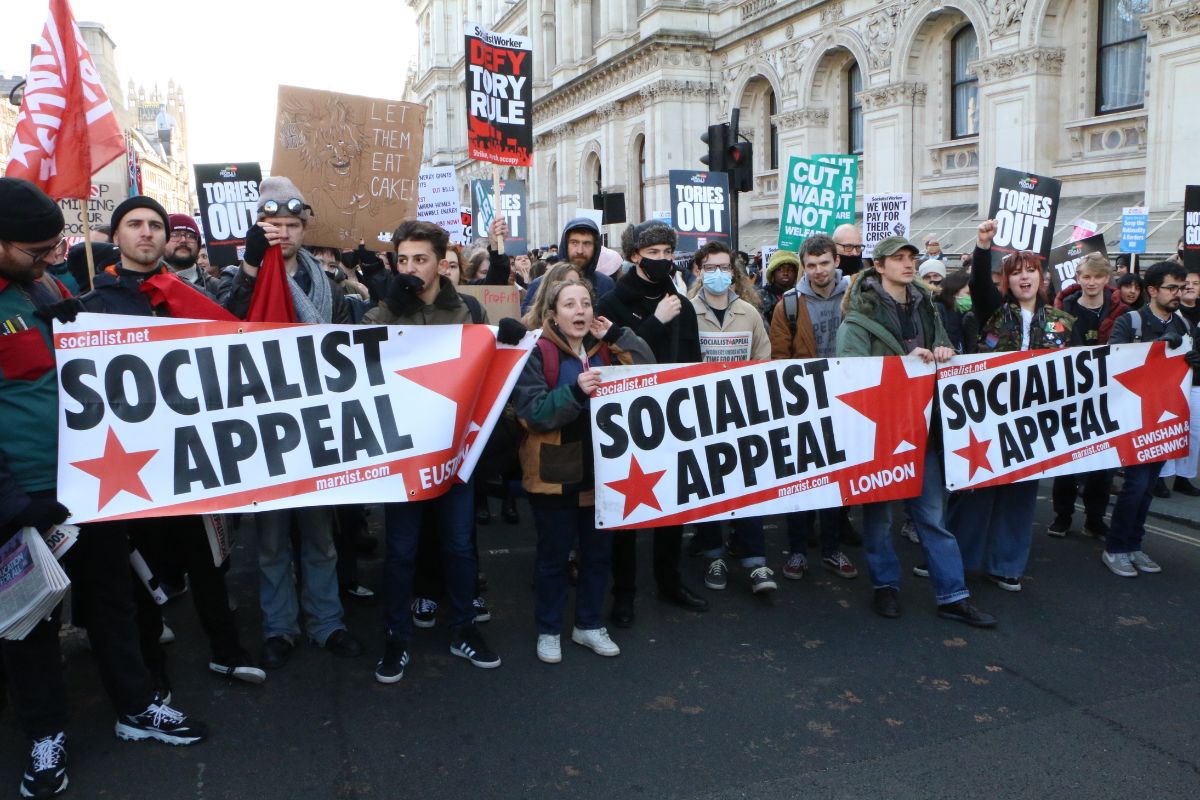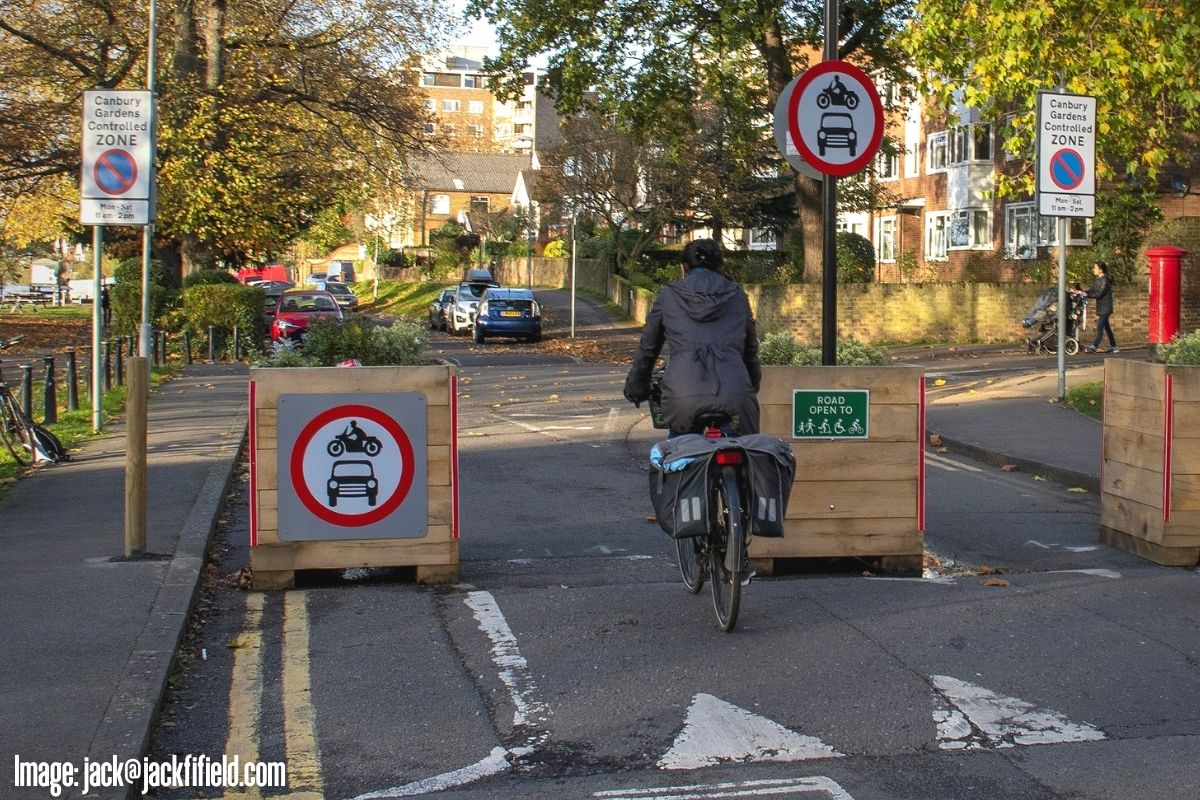Last month, on 18 February, a large demonstration of around 2,000 protesters descended on Oxford to oppose the local council’s ‘15-minute city’ and ‘low-traffic neighbourhood’ (LTN) plans.
Such schemes are increasingly being rolled out in towns and cities across the country. Their stated aim is to reduce car traffic in residential areas, in order to lower pollution levels, make streets quieter, and promote cycling and walking.
The hasty implementation of LTNs has provoked a backlash, however. Critics claim that the changes – erecting physical barriers on certain roads to block drivers – only benefit more affluent residents in leafy suburbs, at the expense of those who rely on their car to get around.
In turn, opponents say that rather than lowering traffic, it is simply diverted elsewhere, clogging up other routes in less prosperous areas, and adding to congestion overall.
And there has often been anger towards councils introducing LTNs without proper consultation, adding to the sense that traditional politicians are elitist, out-of-touch, and indifferent to ordinary people’s concerns.
Far-right opportunists
For these reasons, many slogans on last month’s demo revolved around the need to ‘take back democracy’, with marchers claiming that LTNs would ‘turn Oxford into a prison’.
Both the ultraconservative Heritage Party and neo-nazi Patriotic Alternative (PA) also joined the fray, opportunistically attempting to seize upon genuine local discontent for their own purposes.
They mobilised their supporters from far and wide, with some even coming from Wales and Manchester. This added all sorts of confused elements into the mix, including climate change deniers and conspiracy theorists.
And having grabbed the media’s attention in Oxford, there are worries that the far right will now cynically look to jump on this question in other places where LTNs have become a heated issue.
Oxford rise up today in protest against the WEF 15minute city plan!
It’s all about exercising control & Oxford are a guinea pig in this worldwide experiment.
You won’t see this being reported on scum BBC & MSM.#oxford #WEF #15mincities #15minutecities pic.twitter.com/4vU2qK0iN9— Concerned Citizen (@cotupacs) February 18, 2023
Transport chaos
Oxford is a dense and highly-congested city, with very poor air quality. Travel by any mode of transport is often difficult. Buses are constantly stuck in traffic (when they’re not cancelled due to driver shortages), and there are many points of conflict between vehicles and bikes, so cycling is not for the faint of heart. As a result, many people just go by car, resigning themselves to jams and gridlock.
The Labour-led council has been promising better bike infrastructure for years. But investment has been paltry, and is mostly confined to cheap expedients like lines of paint.
As with LTNs in other parts of the country, roadblocks have been introduced in many neighbourhoods. These are meant to stop ‘rat runs’. But really they just make it more difficult to get around, with few alternatives provided.
To top it off, future plans for Oxford focus on dividing the city into sections, using cameras to track the licence plates of cars passing through various designated boundaries. Drivers who venture outside of their allotted zone too often face fines of up to £70.
This is a real gut-punch for working-class residents who are dependent on car travel, and who are struggling enough already with the cost-of-living crisis and the cuts to public services.
Everyone knows that something needs to be done to resolve these problems. But by foisting the burden onto the shoulders of the working class, the council has helped foment anti-LTN sentiments. These have been brewing in Oxford for several years now – leading to the outburst of anger seen on the 18 February protest, and at other prior incidents.
Culture wars

In the absence of a class perspective, this issue is increasingly being turned into yet another front in the establishment’s culture war.
A growing proportion of people – particularly amongst younger generations – want to avoid driving altogether, and are demanding infrastructure that accommodates this; that allows urban environments to become liveable, breathable, and more easily navigated without a car.
If alternative options exist, people will use them, thereby freeing up road space for those who do need to use their cars. But this requires serious investment in transport and city planning – something that capitalism in crisis is unable to afford or provide.
With none of the mainstream political parties offering a genuine solution, the question is instead being whipped up into a divisive pitched battle about car driving, with right-wing libertarians on one side, and aloof, liberal environmentalists on the other.
The former includes reactionary media outlets like GB News and the Daily Mail, who actively encourage aggression against cyclists, alongside Tory MPs who publicly denounce car-reduction measures as an attempt to ‘restrict personal freedoms’.
In the latter camp, meanwhile, are reformist commentators like George Monbiot, who passionately defend LTNs and other similar proposals, but without addressing the wider implications or social changes required to ensure that ordinary workers are not thrown under the proverbial bus.
Socialist programme

Events in Oxford show that problems of this size, scale, and seriousness cannot be solved on a technocratic basis. Under capitalism, one way or another, it is the working class who will be made to pay.
The only way forward is a socialist programme that utilises society’s resources in a planned, rational, democratic way, in order to cater for everyone’s needs.
Instead of pestering people with fines and so-called ‘green’ taxes (such as the ULEZ charge in London), which in reality are just a form of greenwashed austerity, the billionaires should be expropriated in order to fund mass investment in public transport, cycle networks, and other vital urban infrastructure.
This should include the reversal of all privatisation on Britain’s bus routes and rail services, alongside the nationalisation of the big banks and construction monopolies, under workers’ control.
Only in this way can we plan and manage transport fairly and democratically; stop the fat cats from profiting from travel congestion and chaos; and reduce traffic and pollution, by providing a real, affordable, convenient alternative to car driving for ordinary people.
Above all, to secure these gains, we need united class struggle, to cut across the ruling class’ manufactured culture war.
Working-class residents, environmental campaigners, and striking transport workers – on the railways, the buses, and the Tube – all share a common interest: to fight against the Tories and bosses; transform society along socialist lines; and improve our communities for the benefit of all.






